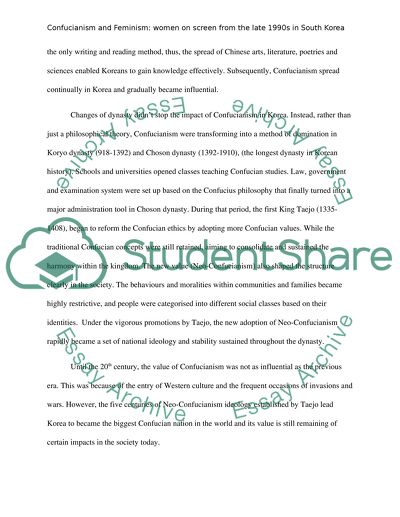Cite this document
(“Confucianism and Feminism: women on screen from the late 1990s in Essay”, n.d.)
Confucianism and Feminism: women on screen from the late 1990s in Essay. Retrieved from https://studentshare.org/visual-arts-film-studies/1691041-confucianism-and-feminism-women-on-screen-from-the-late-1990s-in-south-korea
Confucianism and Feminism: women on screen from the late 1990s in Essay. Retrieved from https://studentshare.org/visual-arts-film-studies/1691041-confucianism-and-feminism-women-on-screen-from-the-late-1990s-in-south-korea
(Confucianism and Feminism: Women on Screen from the Late 1990s in Essay)
Confucianism and Feminism: Women on Screen from the Late 1990s in Essay. https://studentshare.org/visual-arts-film-studies/1691041-confucianism-and-feminism-women-on-screen-from-the-late-1990s-in-south-korea.
Confucianism and Feminism: Women on Screen from the Late 1990s in Essay. https://studentshare.org/visual-arts-film-studies/1691041-confucianism-and-feminism-women-on-screen-from-the-late-1990s-in-south-korea.
“Confucianism and Feminism: Women on Screen from the Late 1990s in Essay”, n.d. https://studentshare.org/visual-arts-film-studies/1691041-confucianism-and-feminism-women-on-screen-from-the-late-1990s-in-south-korea.


